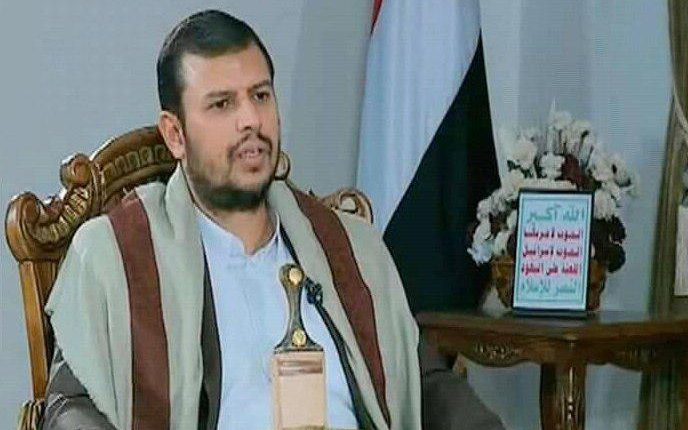Sayyed Abdulmalik Al-Houthi identifies challenges facing September 21 revolution
SANAA, Sept. 20 (YPA) – In a speech characterized by transparency and carrying many revelations, the leader of the Yemeni revolution, Sayyed Abdulmalik Al-Houthi, laid down the determinants of work during the next stage, in addition to the challenges facing the revolution and the requirements to correct state institutions to serve the people.
In a televised speech he addressed this evening, Tuesday, to the Yemeni people on the occasion of the 8th anniversary of the September 21 revolution, Sayyed Abdulmalik Al-Houthi stressed that the priority of confronting the aggression was given the greatest attention at the level of thinking and capabilities, and this still occupies importance in the priorities of the Yemeni leadership in light of the temporary truce.
“The aggression is still continuing and the war has not ended yet. They did not lift their siege and did not end their aggression, and we are only in a temporary truce,” he said.
The Yemeni revolution leader made it clear that Yemen is facing a number of challenges that cannot be ignored, the most prominent of which is the occupation of large areas by the aggression coalition in the country, pointing out that this is an issue that should remain the issue of everyone.
Sayyed Abdulmalik added that the blockade represents a form of challenges facing the revolution, as it affects some priorities in terms of limited capabilities, pointing out that the looting of oil imports and others by the aggression coalition hinders the provision of services and necessary care for the people.
He said that the legacy of the problems of the past, whether in the problems of state institutions or the human structure in them, is one of the challenges facing the revolution, stressing the need to purify state institutions of corrupt and traitors.
Sayyed Abdulmalik pointed out that correcting the state’s situation requires some time, adding that “there is a slowdown and shortcomings. He noted the need to direct attention to correcting the situation of state institutions.
“The current situation in state institutions is not an exemplary level and the steps that have been accomplished are limited and few” he said, adding that “there is still a great program to correct the status of state institutions that requires great effort and the cooperation of those concerned.”
The Leader of the Revolution explained that “the limited achievement in correcting the state’s situation is due to our focus, practically and mentally, on the priority of confronting the aggression, but we did not lose sight of this matter.”
Sayyed Abdulmalik touched on the problem of “the emergence of the personal ambitions of some at the expense of the major goals,” explaining that “some who had a contribution to the popular revolution forget the major goals and come up with personal demands and private interests.”
With regard to the revolution’s entitlements towards the people, Sayyed Abdulmalik affirmed that one of the most important entitlements of the September 21 revolution in the present and the future is the constant orientation and relentless pursuit to achieve an economic renaissance, especially in agriculture and local production, in order to reach self-sufficiency.
“The consolidation of social stability is an important entitlement of the revolution, and it must be among the main tasks to confront all sedition schemes,” he said.
The Leader of the Revolution also warned the Saudi-led coalition countries against continuing to plunder the national wealth, as well as foreign companies that collude with the coalition in looting the country’s wealth.
In his speech, Sayyed Abdulmalik reiterated the call for the coalition “to end the aggression, lift the siege, end the occupation, address the files of war, compensate the damage and take a lesson.”
Sayyed Abdulmalik Al-Houthi emphasized that “the continuation of the aggression is the biggest threat to regional and international peace and its damage will not stop at the borders of Yemen,” indicating that there is no justification for the continuation of the aggression, as its continuation would bring disasters to the coalition countries.
He referred that the Yemeni people are under siege while the revenues of their oil wealth are stolen instead of spending them on salaries and humanitarian and service areas.
The leader of the Yemeni revolution announced the continuation of work in confronting the coalition and its conspiracies aimed at controlling the Yemeni people and occupying the country.
YPA


